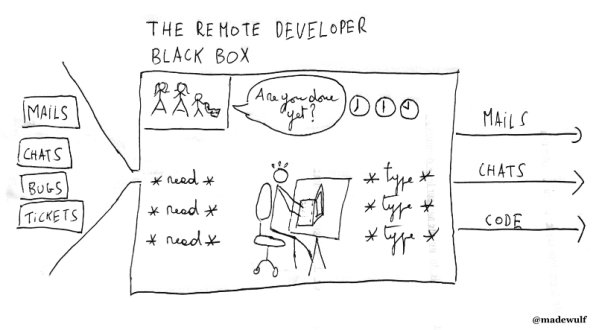How To Avoid Burnout During Your #JobSearch. MUst REad!
Looking for a job is exhausting – physically, mentally and emotionally. Physically, a job search takes time, hours per week on a regular basis for months. Mentally, you need to stay on top of the industries and companies you are targeting, the people you have met and where you are in the process for various jobs. Emotionally, there will be ups and downs as some applications turn into interviews, but some go nowhere.
Anticipate that your energy will wane during your job search, and plan in advance how you will get re-energized and re-motivated. Heading off signs of burnout ensures that you continue your job search efforts at a regular cadence, rather than start and stop. Regular and ongoing action will best help you land a new role.
Here are five ways to avoid burnout during your job search:
1 – Schedule regular breaks as part of your job search routine
You might want to research every company on your target list at once to get it over with, but if you don’t take a break, you are more likely to gloss over important details. If you plow through all your networking calls at once, you may sound robotic and therefore disingenuous. If you fill your day with back-to-back activity, you leave no space for an inspired idea to come to you – such as remembering a former colleague you can reach out to or recognizing that something you learned could be of interest to one of your target companies.
Whether you input specific breaks into your calendar or set an alarm to ring every one to two hours, actually schedule your breaks. In addition, make plans for your breaks so you are excited to take them, and you pick activities that refresh you. A walk, a special coffee, or one episode of your favorite sitcom are short ways to refresh. Also plan for a longer break every few days – go out in nature, or see a friend (you can have a virtual lunch if you’re sheltering in place).
Like this Article? Share It! You now can easily enjoy/follow/share Today our Award-Winning Articles/Blogs with Now Over 2.5 Million Growing Participates Worldwide in our various Social Media formats below:
LinkedIn: https://www.linkedin.com/in/chris-g-laughter-b46389198/
Facebook: http://www.facebook.com/pages/First-Sun-Consulting-LLC-Outplacement-Services/213542315355343?sk=wall
Twitter: Follow us @ firstsunllc
Best Daily Choice: Follow the Best of FSC Career Articles/Blogs @
https://twitter.com/search?q=bestoffscblog&src=typeahead_click
Question: Want the ‘the best/current articles/blogs on the web’ on Job Search, Resume, Advancing/Changing your Career, or simply Managing People?
Answer: Simply go to our FSC Career Blog below & Type(#Jobsearch, #Resume, or #Networking) in Blog Search: https://www.firstsun.com/fsc-career-blog/
What Skill Sets Do You have to be ‘Sharpened’ ?
Article continued …
2 – Tame your negative self-talk
Sometimes it’s not too much work, but not starting at all that you need to overcome. I have heard from job seekers who put off reaching out to their network or applying for jobs because the negative voice in their head tells them they’re not ready to start or not worthy of being hired. You’ll need to tame your negative self-talk before it talks you out of your job search.
Naming the voice is one way of taming the voice. When you name the voice, you put it outside of yourself. You can notice it and choose to let it go. You can even pick a funny name for your negative voice (like Newman, if you’re a Seinfeld fan) to give it less power. If you have a positive voice that comes up, name that one too, and call for it when Newman shows up.
3 – Keep a running list of wins
The emotional ups and downs of a job search can drain your confidence if you’re not careful. Keep a running list of wins – not just job search-related but in all areas of your life. Note even small positive moments of serendipity, like picking the fastest-moving line at the grocery. When you fall into a bad mood, refer to your list of wins for a pick-me-up.
Having a ready list of wins is a great tool for getting your mindset ready before an interview or networking meeting. Knowing your job search-related wins also gives you something positive to say when people inevitably ask you how your search is going. You can respond with a laundry list of what you have accomplished, and then people will know you’re on top of things and won’t give you unsolicited advice!
4 – Surround yourself with success stories
In addition to your own wins, you can lean on the wins of others. Look for articles of successful people in the industries and roles you’re interested in. Look for articles about people getting hired – regardless of industry or role. Seeing that other people have accomplished what you want to accomplish makes it appear more doable.
When I made a career pivot at age 40, it added an international dimension to my life that was surprising in that I had lived in the same city my whole life (including the college years). But I had been reading story after story of people remaking their lives and careers abroad, so that option seemed accessible even to me. The professional association related to your industry or functional area may publish profiles of successful members. Or you can find profiles in business publications, such as Forbes, Fast Company, Inc, etc.
5 – Have a cheerleader to call
Everyone should have a cheerleader in their network (if you don’t, build your network to include this and other key supporters). A cheerleader is the friend who is always your champion. They may not have advice or ideas or feedback for you, but they always have encouraging words of support. Cheerleaders are optimistic and enthusiastic, so you can count on them for an infusion of energy.
I am not advocating a regular pity party – you don’t want to drive your cheerleader away. But sometimes you may need to vent, or at least say candidly how you feel, and a cheerleader is someone who won’t be brought down by your negativity. In fact, their enthusiasm is often contagious and just speaking to them can help you bounce back, whether you talk about your job search specifically or not.
The job search is a marathon and a sprint
You want to have a cheerleader, success stories and the other three tactics available to you to keep you going in your job search. The day-in, day-out nature of job search is much like a marathon, where you need to be prepared for a long journey.
That said, the most productive job search has a sense of urgency and speed – you want to be the first to apply, or ideally hear about jobs before they are broadly posted. In this way, the job search is also a sprint, and you can use these tactics as energy boosts to propel your search forward.









